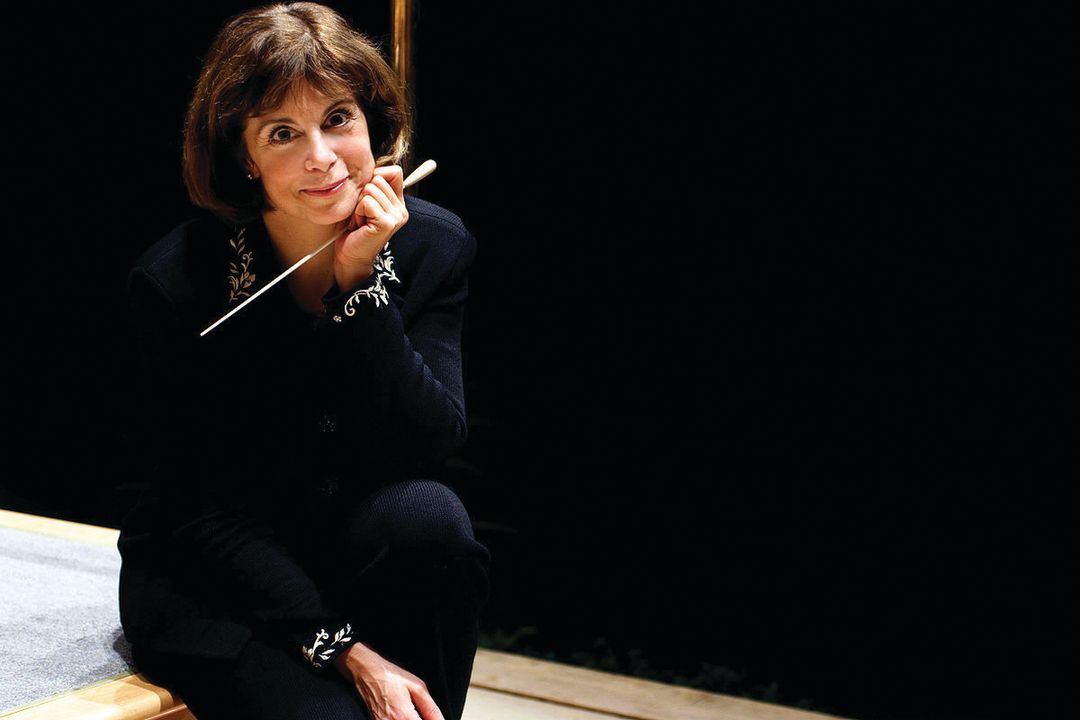Conductor JoAnn Falletta Returns to Lead the Sarasota Orchestra Next Month

JoAnn Falletta
Image: Cheryl Gorski
Grammy Award-winning conductor JoAnn Falletta, recently honored by Performance Today as its inaugural Classical Woman of the Year for her lasting impact on classical music, is among the guest conductors helming the Sarasota Orchestra’s Masterworks series this season. Falletta will join the orchestra Dec. 6-8 at the Van Wezel for three “Roman Festivals” concerts, with works by Elgar, Bruch and Respighi. On Dec. 5, she will take the stage at Holley Hall for a Classical Conversation with host and former New York Philharmonic manager Edward Alley. Details about both are available at sarasotaorchestra.org/masterworks/roman-festivals.
Has the field of conducting opened up more for women since 1999, when you became the first female music director of a major American orchestra, the Buffalo Philharmonic?
“It really has, but only in the last not even five years. Orchestras are starting to look for alternatives to the typical music director, the older European gentleman. Our music world is changing. We’re seeing more diverse musicians, orchestras are playing more diverse music. Things are changing, but they sure took a long time.”
What does a female conductor bring to the music and to the musicians?
“Every conductor is different. Some men are very gentle and inclusive, but in general, women bring more inclusion to the working environment. Women tend to value and acknowledge the members of the team in a different way—a way of listening to the orchestra and responding to it—and that has proven to be healthy. In a way it’s made things harder, though. American orchestras do like the feeling of being a team, being part of the process, but still someone has to come with the overview, the interpretation, the vision for what will happen. It makes the job more challenging, but ultimately more beautiful and satisfying.”
You’ve guest conducted orchestras around the world. How do you approach meeting and working with a new group of musicians?
“For me, it’s very important to let them play for a while. That’s how they communicate to you who they are. You become attuned to their body language: are they uncomfortable with a certain passage, for example. A lot of it is wordless; it’s really magical. You’re having a dialogue with them and they with you without words.”
How does this particular program stand out, and what do you want audience-goers to come away?
“There was great interest in doing those two Respighi pieces; they’re spectacular works. Rome was his adopted city and he loved it. He was on a personal campaign to raise the Italian hopes; he wrote music that always looked back at the glorious musical past of the Italians, to create a feeling of pride and respect of the Italian heritage. The last piece, his Roman Festivals, is so vivid and so powerful, so joyful that I’m glad we can end the concert with that. And the first piece, Elgar’s In the South, which perhaps the audience has not heard, has a definite link to Italy, although Elgar—a British composer—is as far from Italian as you can get. He traveled to Italy and fell in love with it; this piece is filled with an overwhelming sense of love.”
I understand you were the orchestra’s very first guest conductor in 1990 while [the late] Paul Wolfe was artistic director.
“I have the warmest memories of the orchestra; what Paul was doing there was amazing—the summer festival, his interest in young people and education. The group had a great spirit and a great heart, and I remember that as an incredibly happy week. I look forward to being in the middle of the orchestra again.”



